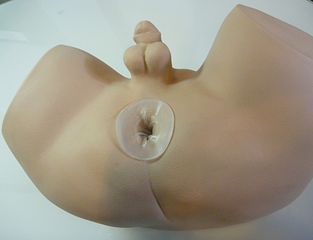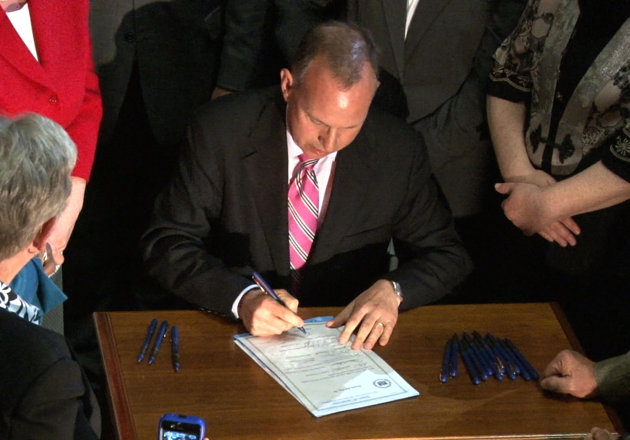Some people are depressed by situational causes, while others may be genetically predisposed to depression. Learn how to understand the cause of your depression.
By Beth W. Orenstein
Medically reviewed by Lindsey Marcellin, MD, MPH
Depression can certainly be caused by life events or situations, such as during the loss of a loved, after losing your job, while getting a divorce, or when bills pile up and you can't see a way out from under them. But some people experience depression symptoms without being able to pinpoint an obvious cause.
“There are many cases in which a person is feeling depressed and they may not know why,” says Felicia Wong, MD, a psychiatrist in practice in Los Angeles. In fact, people who go through major depression often don’t have a situational cause, says Dr. Wong. “Situations such as a divorce or a loss can exacerbate depression, but there are people who get depressed for no apparent reason.”
Research shows that there is no one cause of depression, but rather, there are many factors — genetic, environmental, and psychological — that can cause feelings of depression, says Joseph Shrand, MD, medical director of the High Point Treatment Center in Brockton, Mass.
“There are some people whose life can be perfect,” says Dr. Shrand, “but they have this sense of gloom and doom.” Just as some people are susceptible to diabetes and high blood pressure, some are susceptible to depression, which is a disorder like the others, but it affects the brain, Shrand explains.
Symptoms of Depression
When family and friends ask you what’s making you depressed, it’s okay to be honest and say you don’t know. If you are feeling depressed for a prolonged period of time, you should get evaluated by a mental health professional, especially if you experience any of these depression symptoms for more than two weeks:
Having persistent sad, anxious, or "empty" feelings
Feeling hopeless
Feeling guilty, helpless, or worthless
Being irritable
Losing interest in activities that you normally like and enjoy doing
Being tired and having little or no energy
Having difficulty concentrating or making decisions
Having difficulty sleeping or sleeping all the time
Eating too much or not eating at all because you’ve lost your appetite
Having thoughts of suicide
Having physical pain such as headaches, cramps, or digestive problems that do not respond to treatment
Finding Effective Treatment for Depression
Because of the stigma associated with mental health disorders, some people are reluctant to seek treatment for depression. However, feeling depressed doesn’t mean you have a character flaw or that you’re inadequate in any way. If you have feelings of depression and they don’t go away, you should take action, Shrand says.
Since depression causes can affect treatment, it’s also important to determine whether a situation or a predisposition to depression is the cause of your overwhelming sadness. “If a person is feeling a little down, but they can identify the reasons why, they might be able to make adjustments in their lives to cope with it,” Wong explains.
But if you continue to feel depressed for prolonged periods of time and you can’t figure out why, you should seek the help of a mental health professional such as a psychologist, psychiatrist, or social worker. “It can be difficult to get out of a depression on your own,” Wong says. “But there are trained professionals who can help you through those difficult phases and back to your normal, happy self.”
Treatment for depression often includes medication, such as antidepressants; lifestyle recommendations, including exercise, stress management, and dietary changes; and psychotherapy to help uncover the cause of your depression. Putting your feelings into words can be very powerful, says Shrand. And with professional help, appropriate treatment, and the right lifestyle changes, you can improve your mood and overcome your depression.




 (O.R.A.I.) is a dedicated condom designed exclusively for receptive anal intercourse. It is worn internally by a receptive male/female partner. It is intended to facilitate a pleasurable and safe experience for both partners, increase its acceptability, improve sensation and comfort, and influence consistent condom compliance for those who engage in anal intercourse and are at risk for contracting HIV/AIDS, and STI/STD. It is intended to provide a receptive partner with the initiative to use a condom without negotiation.
(O.R.A.I.) is a dedicated condom designed exclusively for receptive anal intercourse. It is worn internally by a receptive male/female partner. It is intended to facilitate a pleasurable and safe experience for both partners, increase its acceptability, improve sensation and comfort, and influence consistent condom compliance for those who engage in anal intercourse and are at risk for contracting HIV/AIDS, and STI/STD. It is intended to provide a receptive partner with the initiative to use a condom without negotiation.

